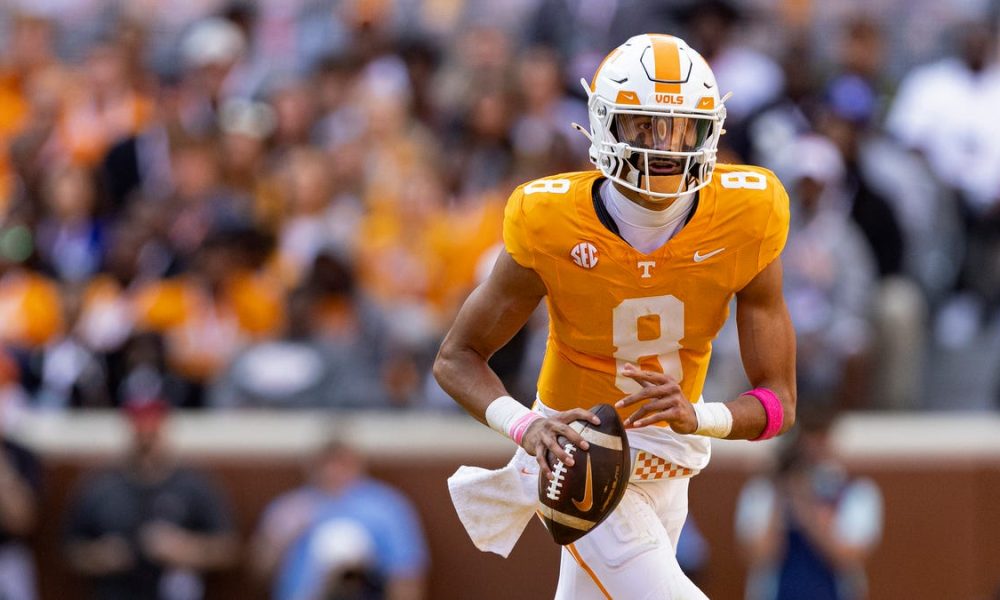NIL
Division II expands playoff field
Indianapolis – The NCAA Division II football playoffs will expand from 28 to 32 teams beginning this season to accommodate the format change that will award 16 conferences automatic bids. According to Division II policy, bracket expansion must be considered when automatic qualifiers make up more than 50% of the field. That prompted the expansion […]

Indianapolis – The NCAA Division II football playoffs will expand from 28 to 32 teams beginning this season to accommodate the format change that will award 16 conferences automatic bids.
According to Division II policy, bracket expansion must be considered when automatic qualifiers make up more than 50% of the field. That prompted the expansion to 32 teams, the NCAA announced Wednesday.
Division II football schools in January approved a proposal that requires all conferences be represented in the championship bracket. Division II football was the only team sport across all three divisions that did not use automatic qualification.
Ferris State has won the national championship in three of the last four years.
The playoff schedule will remain the same, except that the four No. 1 seeds will no longer receive first-round byes. The championship game is Dec. 20 in McKinney, Texas.
Iamaleava cases
The surprise transfers of brothers Nico and Madden Iamaleava have prompted fresh questions about contracts and name, image and likeness buyouts for athletes in a college sports landscape looking increasingly like the pros.
Nico Iamaleava, who led Tennessee to the College Football Playoff last season, walked away from a reported $2.4 million NIL contract to seek higher pay elsewhere. He joined UCLA on Sunday, reportedly for half the money, though terms of any NIL deal were not released.
Arkansas freshman quarterback Madden Iamaleava entered the portal this week not long after spring practices wrapped up and will join his brother at UCLA, according to multiple media reports.
Arkansas athletic director Hunter Yurachek released a statement indicating he would support efforts by the Razorbacks’ NIL collective to enforce buyout clauses in athlete contracts. Iamaleava reportedly had a contract valued at $500,000 upon signing with Arkansas on Dec. 4, according to reports.
Arkansas Edge, the school’s collective, requires Iamaleava to repay 50% of their remaining contract value for leaving before the contract expires, according to reports. The Arkansas athletic department declined to comment and Arkansas Edge did not respond to messages.
Yurachek, in a post on X that did not name Iamaleava, wrote: “I have spoken with the leadership team at Arkansas Edge and expressed my support in their pursuit to enforce their rights under any agreement violated by our student-athletes moving forward. We appreciate Edge’s investment in our student-athletes and acknowledge the enforcement of these agreements is vital in our new world of college athletics.”
The latest cycle of transfers has seen a lot of chaos and accusations of tampering. Earlier this year, Wisconsin said it had “credible information” that Miami and Xavier Lucas made impermissible contact with each other before the former Badgers cornerback decided to transfer to his home-state school.
All this comes with final approval of the $2.8 billion NCAA antitrust settlement looming. The plan will clear the way for Division I schools to share up to $20.5 million each with their athletes annually but also assess NIL deals athletes sign with third parties.
The settlement would go into effect July 1, and athletes have been scrambling to renegotiate contracts or find better opportunities at new schools before deals valued at $600 or more must be approved through a clearinghouse that will be administered in part by financial giant Deloitte in a bid to establish fair market value.
Rich Stankewicz, the director of operations for the Happy Valley United collective backing Penn State athletics, said he thinks there is a time and place for NIL buyouts, citing a spring transfer departing before playing a snap as an example. He favors incentive-based contracts contingent on in-season academic and athletic performance.
“If more money is paid out in those time frames, that gives incentive for the player to stay and see those dollars from their contract, rather than potentially collecting up front and then deciding the grass is greener somewhere else three months later,” he told the Associated Press.
Russell White, president of The Collective Association, said buyout clauses have been baked into high-value NIL contracts for some time but that those clauses probably will become standard for all athletes going forward.
White said collectives have been mostly successful quietly coming to settlement terms with athletes who leave – which, according to New York-based employment attorney Dan Ain, is advantageous to both sides.
“Suing 19-year-old kids isn’t a great look,” Ain said.